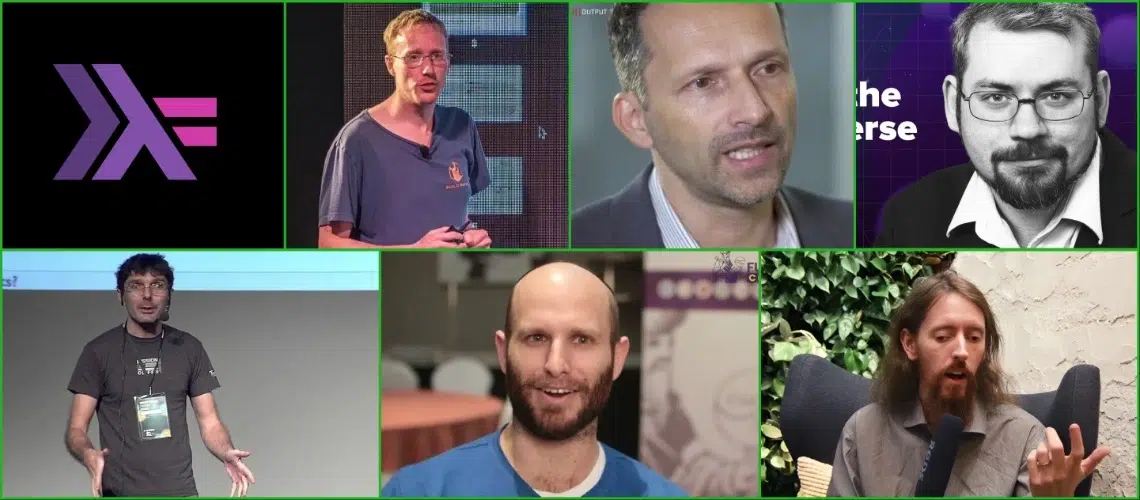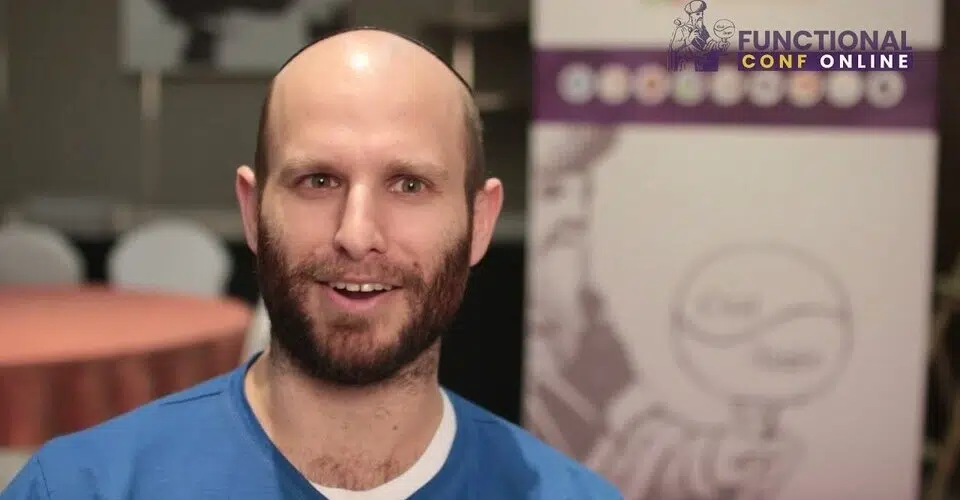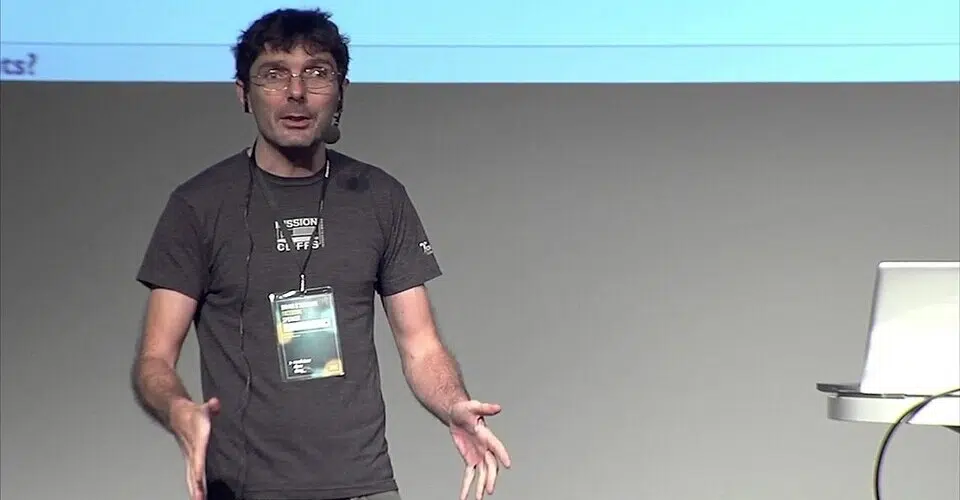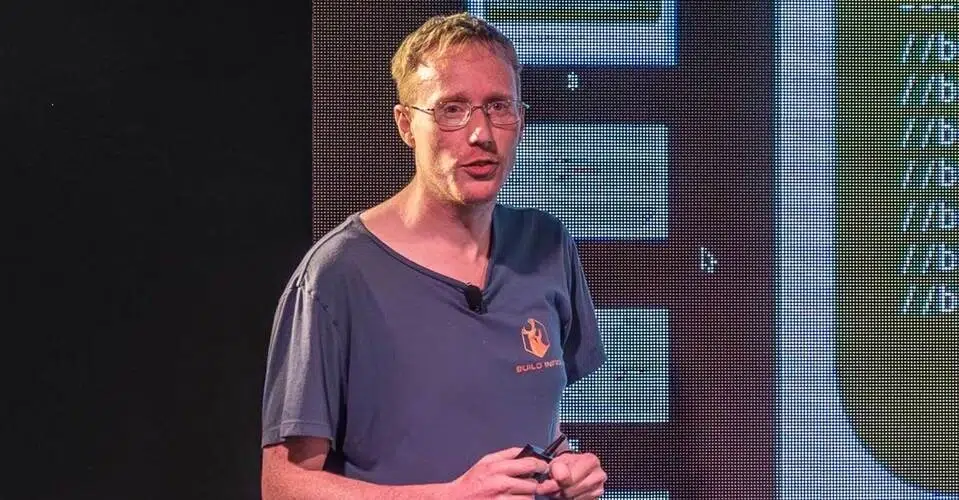Top Haskell Developers in the World

Haskell has quietly powered some of the most advanced software systems in the world – from high-assurance finance to cutting-edge compilers.
Behind this power is a remarkable global community of developers who have pushed the boundaries of functional programming. This list celebrates the standout Haskell minds shaping the language today: open-source leaders who maintain foundational libraries, compiler contributors driving GHC forward, startup founders building real-world systems in Haskell, and educators making abstract concepts approachable. Below is a carefully curated list of the most influential Haskell developers making an impact across industry, open source, and academia.
- Edward Kmett
- Alexis King
- Michael Snoyman
- Ben Gamari
- Andrew Lelechenko
- Bryan O’Sullivan
- Gabriel Gonzalez
- Julie Moronuki
- Duncan Coutts
- Edsko de Vries
- Andres Löh
- Manuel Chakravarty
- Gershom Bazerman
- Chris Done
- Neil Mitchell
- Kazu Yamamoto
- Roman Cheplyaka
- Thoai Nguyen
- Jasper Van der Jeugt
- Joachim Breitner
Now, let’s delve deeper into their remarkable contributions and impact.
Edward Kmett

Nationality: American
Edward is a Haskell developer best known for creating and maintaining the lens library, a powerful toolkit for functional optics. With over 300 Haskell libraries on his GitHub account, he has explored advanced type system features and category theory through practical libraries.
Kmett’s work (including libraries like lens, parsers, adjunctions, and many more) has become foundational in the Haskell ecosystem. He is recognized for pushing Haskell’s type system to its limits and sharing his expertise through talks and blogs. Edward Kmett currently works in industry (most recently as an engineer at Jane Street and now at an AI startup), while continuing to mentor and engage with the open-source Haskell community.
- Linkedin: Edward Kmett
- X (Twitter): @kmett
- Github: ekmett
Alexis King
Haskell is at its best when it lets you express precisely what you mean — and nothing else.
Nationality: American
Alexis is a rising star in the Haskell world, known for pushing the language forward with new ideas in type systems and effects. She’s the author of freer-simple and eff, libraries for algebraic effects that influenced the design of effect systems in Haskell.
Alexis has contributed to GHC itself – for example, improving support for arrow syntax and proposing enhancements for delimited continuations in the runtime. She has also worked on production Haskell code at Hasura, where she helped develop their GraphQL engine in Haskell. King is an avid blogger, writing in-depth tutorials about lenses, parsers, and GHC internals, and is active on social media educating developers about Haskell.
Her work exemplifies modern, practical use of Haskell’s most advanced features.
- X (Twitter): @lexi_lambda
- Github: lexi-lambda
Michael Snoyman

Nationality: Israeli
Michael is the creator of the Yesod web framework and a leading figure in Haskell’s web development scene. He founded and maintains numerous Haskell OSS projects including Yesod, the Conduit library for streaming, the Stack build tool, and the Stackage package repository.
As Vice President of Engineering at FP Complete, Snoyman has led commercial Haskell development and consulted for companies adopting Haskell. He authored Developing Web Apps with Haskell and Yesod and has written extensively on Haskell best practices. Snoyman’s work on Stack and Stackage greatly improved dependency management in the Haskell ecosystem, making it easier for engineers to use Haskell in production.
- Linkedin: Michael Snoyman
- X (Twitter): @snoyberg
- Github: snoyberg
- Website/Blog: snoyman.com
Ben Gamari
Nationality: American
Ben is one of the principal contributors to the Glasgow Haskell Compiler, specializing in low-level compiler and runtime improvements.
As a partner at Well-Typed, he spends most of his time working on GHC’s code generation, optimization passes, and the runtime system. Ben led the effort to bring GHC’s new concurrent non-moving garbage collector – a low-latency GC for Haskell’s runtime. He also spearheaded porting GHC to the ARM architecture, broadening Haskell’s reach beyond x86. Gamari has used Haskell in diverse fields from machine learning to scientific data analysis and robotics control. He is the release manager for GHC, regularly publishing status reports and updates on compiler progress.
His deep expertise in systems programming with Haskell has been key to scaling Haskell on modern multicore hardware.
- Linkedin: Ben Gamari
- X (Twitter): @bgamari
- Github: bgamari
Andrew Lelechenko
Nationality: Ukrainian
Andrew is an extremely active Haskell community member and maintainer of many core libraries. He stepped up to maintain crucial packages like bytestring, text, vector, unix, and random, clearing long-standing backlogs and modernizing their codebases.
Andrew’s efforts (for example, switching text to a UTF-8 internal representation) have led to significant performance and correctness improvements in the ecosystem. He also develops a range of mathematical and numerical libraries, drawing on his PhD in mathematics. Lelechenko is a frequent speaker and mentor in Haskell, advocating for timely maintenance and community ownership of important projects.
In 2023, he joined the Haskell Foundation Board, reinforcing the bridge between community maintainers and the foundation’s mission.
- Linkedin: Andrew Lelechenko
- Github: Bodigrim
Bryan O’Sullivan

Nationality: Irish
Bryan is a software engineer and author who co-wrote the classic book Real World Haskell (2008), which introduced many to the language.
He has created several widely used Haskell libraries, such as attoparsec (a fast JSON parser) and criterion (a benchmarking tool), and contributed to the text and bytestring libraries for high-performance I/O. O’Sullivan co-founded a startup (MailRank) acquired by Facebook, where he later led a Haskell-based infrastructure team. He is known for combining pragmatic engineering with deep knowledge of Haskell’s abstractions.
Currently an SVP of Software at Zoox (an autonomous vehicle company), Bryan remains influential through his writing, including blog posts on distributed systems and functional programming best practices.
- Linkedin: Bryan O’Sullivan
- Github: bos
Gabriel Gonzalez
The beauty of Haskell is that it forces you to make the impossible unrepresentable.
Nationality: American
Gabriel “Gabe” is a popular Haskell blogger and open-source developer, widely known for his blog “Haskell for All” and for authoring numerous libraries.
He created Dhall, a programmable configuration language with a strong type system, as well as the pipes library for streaming data. Gonzalez has worked as an engineer at startups (he currently works at Mercury, a bank using Haskell) and is an enthusiastic evangelist for Haskell in production. A former “Haskell cheerleader”, he has written many tutorials demystifying monads, functors, and advanced type tricks.
His work often focuses on making Haskell’s power accessible – for example, Dhall shows how Haskell’s ideas can improve real-world tasks like configuration.
- Linkedin: Gabriel Gonzalez
- Github: Gabriel439
Julie Moronuki
Nationality: American
Julie is an accomplished Haskell educator who transitioned from linguistics to become a leading voice teaching Haskell to beginners.
She co-authored “Haskell Programming from First Principles”, a comprehensive intro textbook that has helped countless new developers learn Haskell. She also co-wrote “The Joy of Haskell”. Julie co-founded Typeclass Consulting (Typeclass.io) to provide online Haskell courses and content. An active blogger and speaker, she focuses on making Haskell’s abstract concepts approachable through clear explanations and exercises.
Moronuki has been instrumental in growing the Haskell community by mentoring newcomers, giving talks at conferences, and continuously publishing learning materials for functional programming.
- X (Twitter): @argumatronic
- Github: argumatronic
Duncan Coutts

Nationality: British
Duncan is a veteran Haskell developer and a co-founder of Well-Typed, the first Haskell consultancy. With over 15 years of Haskell experience, he is a well-known member of the community and has maintained core tools like Cabal (the Haskell package system) and the bytestring library.
Duncan played a leading role in establishing the Haskell Platform and has contributed to packaging Haskell compilers for various systems. He has a PhD from Oxford focused on high-performance Haskell code and co-authored key libraries (such as bytestring and binary, particularly via work on stream fusion). Duncan also serves as chief architect on industrial Haskell projects (notably at IOHK for the Cardano blockchain), bridging academic techniques with real-world applications.
- Github: dcoutts
Edsko de Vries
Nationality: Dutch
Edsko has nearly two decades of Haskell experience and is known for his work on distributed systems and formal methods in Haskell. As a Well-Typed consultant, Edsko contributed to projects like Cloud Haskell (for distributed computing), the Hackage Security framework, Cabal improvements, and even GHC itself.
He co-developed libraries such as generics-sop (for generic programming) and large-records, showcasing Haskell’s metaprogramming abilities. In recent years, Edsko was a key architect on IOHK’s Cardano blockchain project: he designed the overall architecture of Cardano’s Ouroboros consensus layer, including inventing a novel hard-fork combinator to smoothly upgrade protocols. He also worked on formally specifying a crypto wallet and coin selection algorithms in Haskell. Edsko is passionate about correctness and has promoted techniques like state-machine testing (he wrote a popular library for testing distributed systems with QuickCheck).
He also shares knowledge through the “Haskell Unfolder” blog series and training sessions worldwide.
- Linkedin: Edsko de Vries
- Github: edsko
Andres Löh
Nationality: German
Andres has been active in the Haskell community for over 20 years. As a partner at Well-Typed, he consults and trains teams worldwide in Haskell best practices.
Andres won the ICFP Programming Contest in 2004 with an all-Haskell team, demonstrating Haskell’s strengths in competitive programming. He maintains numerous Haskell libraries and tools on Hackage and has contributed to package management for Gentoo and NixOS. Andres chaired the Haskell Symposium in 2006 and remains involved in organizing meetups, hackathons, and the Haskell Communities & Activities Report.
He also serves as the Chair of the Haskell Foundation Board. Known for his work on generic programming (he co-authored the “Generic Haskell” paper and libraries), Andres Löh is a linchpin connecting the community’s academic and industrial facets.
- Linkedin: Andres Löh
- X (Twitter): @kosmikus
- Github: kosmikus
- Website/Blog: http://andres-loeh.de
Manuel Chakravarty

Nationality: Austrian
Manuel has contributed both to Haskell’s design and to applying Haskell in cutting-edge domains. He co-designed key GHC extensions – notably type families and the FFI (Foreign Function Interface) – that expanded Haskell’s capabilities.
Manuel was the lead on Accelerate, an embedded Haskell DSL for GPU computing, enabling high-performance array processing in Haskell. He also co-developed an LLVM back-end for GHC to improve its code generation. In recent years, Chakravarty has applied his expertise to blockchain technology: he’s a researcher and architect at Input Output (IOG), where he helped design the Plutus smart contract language and the core Ouroboros consensus protocol for Cardano.
A self-described “lambda scientist”, Manuel bridges theory and practice, pushing Haskell into new areas like cryptography and fintech.
- Linkedin: Manuel Chakravarty
- X (Twitter): @TacticalGrace
- Github: mchakravarty
Gershom Bazerman
Nationality: American
Gershom is a longtime Haskell community leader and open-source contributor. By day he is a software developer at Arista Networks working on network systems, but he’s better known in the Haskell world for his community work.
Gershom served on the Haskell.org Committee (as Chair in 2015–2016) where he helped oversee infrastructure like Hackage and the Haskell website. He has authored and maintained various Haskell libraries (including contributions to Cabal and Stack tooling) and is an advocate for better package ecosystems. Bazerman also has a deep interest in category theory and has given many talks connecting theory to practice (e.g., on package dependency models and algebraic design).
He co-hosts the Haskell Interlude podcast and remains an active mentor. Gershom’s ability to navigate both the technical and community aspects of Haskell has been crucial to its growth.
- Linkedin: Gershom Bazerman
- Github: gbaz
Chris Done
Nationality: British
Chris has built a reputation for improving the Haskell developer experience through tooling and libraries. He created hindent (a Haskell source code formatter) and ghci-ng (an improved REPL), as well as the Lucid library for HTML templating in Haskell.
Chris was a key contributor to the Haskell Language Server and has worked on integrations for editors (he developed structured-haskell-mode for Emacs and contributed to VSCode extensions). He also co-maintained parts of Yesod and wrote many blog posts on practical Haskell optimization and project structure. Chris Done has been blogging about Haskell since 2008, and his article “An Alternative Haskell Prelude” spurred discussions on modernizing defaults.
He’s worked as a Haskell engineer at FP Complete and at Google. Through countless open-source contributions, Chris has made Haskell more accessible and user-friendly for developers.
- X (Twitter): @christopherdone
- Github: chrisdone
- Website/Blog: chrisdone.com
Neil Mitchell

Nationality: British
Neil is a software engineer known for creating some of Haskell’s most widely used developer tools. He is the author of Hoogle, the Haskell API search engine that allows developers to search functions by name or type.
He also created HLint, the Haskell linter that suggests improvements to code style, and Shake, an efficient build system library used as an alternative to Make. Neil holds a PhD in Computer Science and has applied Haskell in industry at Credit Suisse, Standard Chartered, Barclays, and Digital Asset before joining Meta’s developer infrastructure team.
He is a strong proponent of using Haskell’s static types for reliability and has shared countless blog posts and talks on improving Haskell tooling. Mitchell’s work has greatly improved productivity for Haskell developers worldwide by automating and streamlining tasks.
- Linkedin: Neil Mitchell
- X (Twitter): @ndm_haskell
- Github: ndmitchell
Kazu Yamamoto
Nationality: Japanese
Kazuhiro (Kazu) is a Haskell programmer renowned for his work on high-performance networking and web servers in Haskell. He is the primary author of Warp, the fast HTTP server powering Yesod and other web frameworks.
He also maintains the low-level network library (sockets API), taking over maintainership to keep it performant and reliable. Kazu has written production implementations of protocols in Haskell, including a full HTTP/2 library and a DNS resolver, as well as the tls package for secure communications. He contributed to the mio I/O manager for GHC, enabling better multicore scaling for network servers.
Based in the research lab of Internet Initiative Japan, Kazu Yamamoto has demonstrated that Haskell can be a capable systems programming language, using it to build servers that handle thousands of concurrent connections with ease.
- Github: kazu-yamamoto
Roman Cheplyaka
Nationality: Ukrainian
Roman is known for his clear and insightful writing on Haskell as well as for creating useful libraries. He developed tasty, the modern testing framework that unified HUnit and QuickCheck under one umbrella.
Tasty quickly became the go-to testing tool in the Haskell ecosystem, replacing the earlier test-framework. Roman also maintains libraries in areas like terminal ANSI handling, traversal helpers, and more. He’s an active blogger who has written extensively about topics like extensible effects, category theory for programmers, and various Haskell idioms. Roman has been a top contributor on Stack Overflow, helping developers with everything from beginner questions to tricky GHC type errors.
Through his open-source work and mentoring, he has had a broad impact on day-to-day Haskell programming, emphasizing simple and composable design.
- Github: UnkindPartition
- Website/Blog: ro-che.info
Thoai Nguyen
Nationality: Australian
Thoai is a polyglot engineer, enthusiastic about functional programming and famously an “enemy of loops.” After a day immersed in TypeScript, Python, PHP, Terraform, and Kubernetes manifests, he spends his evenings and weekends tinkering in his echo chamber, crafting the “next big thing” in Haskell and championing code readability and thorough testing over magic tricks.
His thoughtful exploration of the language’s value is exemplified in his LinkedIn article “Why Haskell (Functional Programming) Matter — Part 1” where he dives into why Haskell’s purity, expressiveness, and testability make it worth learning. Within his broader role as an engineering lead and problem‑solver across domains like DevOps, risk, travel, and hospitality, Haskell remains his passion project and a forum for his deep‑thinking about software craftsmanship.
- Linkedin: Thoai Nguyen
Jasper Van der Jeugt
Nationality: Belgian
Jasper is a Haskell programmer best known for creating Hakyll, a Haskell static site generator used for many blogs and websites (including his own). Hakyll showcased how Haskell’s type-safety and purity can be applied to practical tasks like site generation.
Jasper has also authored the websockets library for WebSocket servers in Haskell and Patat, a markdown-based presentation tool for the terminal. He’s an active open-source contributor with a broad portfolio, from web development to game libraries. Jasper worked at Fuse and then at Snyk (via an acquisition) as a Staff Engineer, where he continues to write Haskell for security tooling. He frequently speaks at Haskell meetups and has served as an organizer of ZuriHac (the big Haskell hackathon).
Jasper’s work lowers the barrier for using Haskell in web and scripting contexts.
- Linkedin: Jasper Van der Jeugt
- X (Twitter): @jaspervdj
- Github: jaspervdj
- Website/Blog: jaspervdj.be
Joachim Breitner
Nationality: German
Joachim is a long-time contributor across the Haskell and GHC ecosystem, known for work that connects compiler engineering, tooling, and distribution engineering. He has maintained GHC packages for Debian and has contributed improvements and analysis work around GHC and its libraries.
Breitner is also a consistent public educator through detailed technical writing, including posts that dissect hard practical problems like bootstrapping GHC. His work often sits at the boundary between theory and implementation, and he has remained visible in the community through talks, events, and open-source collaboration.
- Linkedin: Joachim Breitner
- X (Twitter): @nomeata
- Github: nomeata
- Website/Blog: joachim-breitner.de
Wrap Up
These experts represent exceptional talent, making them extremely challenging to headhunt. However, there are thousands of other highly skilled IT professionals available to hire with our help. Contact us, and we will be happy to discuss your hiring needs.
Note: We’ve dedicated significant time and effort to creating and verifying this curated list of top talent. However, if you believe a correction or addition is needed, feel free to reach out. We’ll gladly review and update the page.
Frequently Asked Questions
Yes, Haskell is still relevant, particularly in academic research, fintech, and industries where correctness and functional programming are critical.
Hiring a Haskell developer usually costs between $60 and $130 per hour, depending on their expertise and project type.
Subject matter experts are typically developers active in the Haskell open-source community, authors of Haskell libraries, or consultants with production experience in functional programming.
Yes, Haskell programmers are relatively rare compared to mainstream languages, but dedicated communities and niche agencies make it possible to find skilled developers.
You can hire Haskell freelancers on platforms like Upwork, Toptal, Fiverr, and through specialized sites such as Functional Works.
